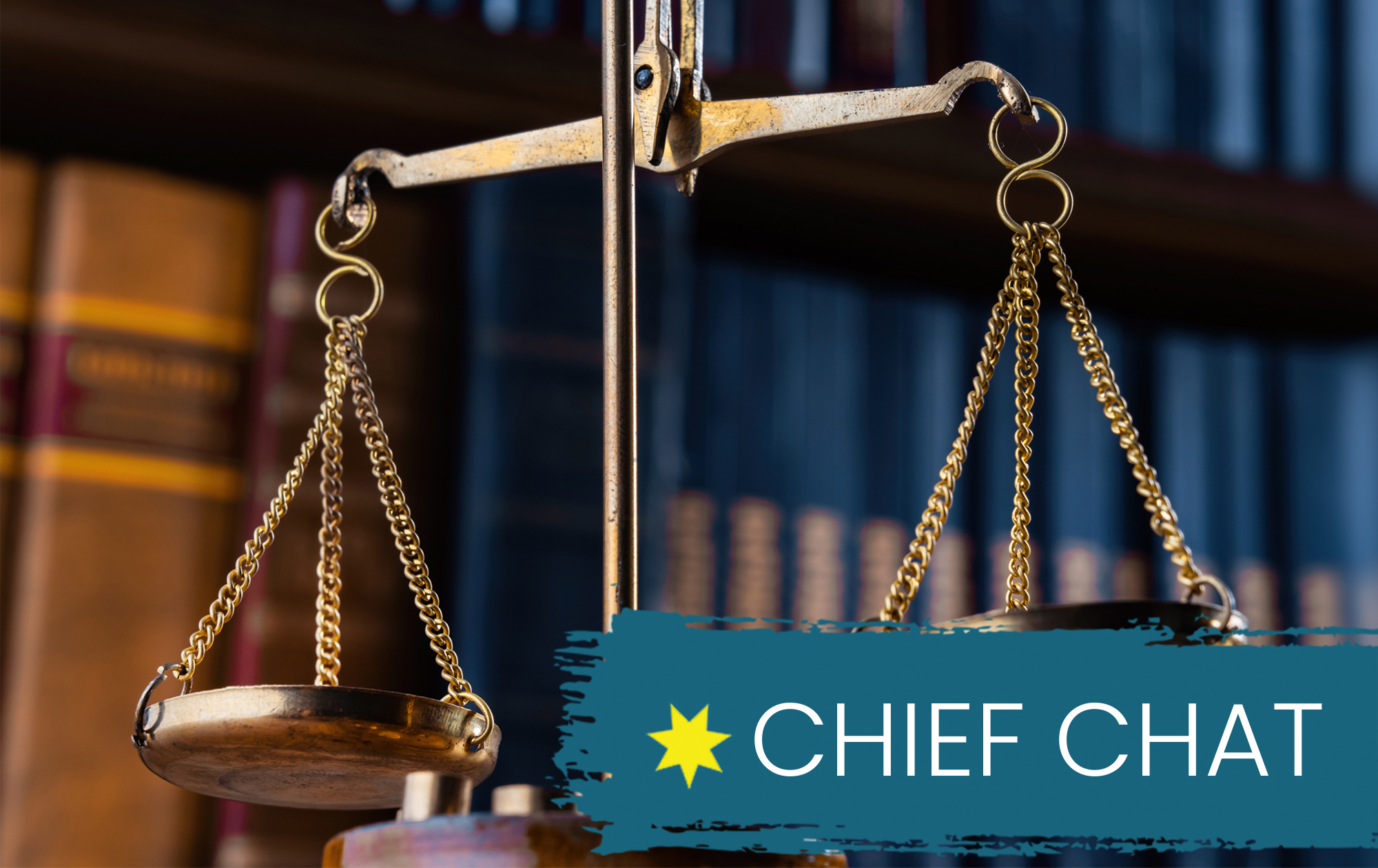Osiyo,
As a sovereign government, one of Cherokee Nation’s most profound responsibilities is providing safety and enacting justice across our Reservation. This task is rooted in deep Cherokee values of protecting our citizens and neighbors, and we carry it out through a modern justice system, exemplified by efficiency and collaboration.
We were recently honored to provide a tour of our justice system operations to representatives from the U.S. Department of Justice: Principal Deputy Attorney General Emil Bove and Director of the Office of Tribal Justice Gina Allery. The visit showcased Cherokee Nation’s effective system of policing and prosecution for our important federal partners.
For nearly two centuries, Cherokee Nation has upheld a vision of justice anchored in accountability and self-determination. From the adoption of the 1839 Cherokee Nation Constitution, we operated a judicial branch including a Supreme Court and district courts, as well as the oldest law enforcement entity in Oklahoma, the Cherokee Lighthorsemen, now known as the Cherokee Nation Marshal Service.
This system has grown exponentially following restored legal recognition of our jurisdictional authority by the McGirt decision and others. We have gone from handling fewer than 100 criminal cases annually before McGirt to filing more than 25,000 charges since the ruling.
Today, Cherokee Nation’s justice system has reached an impressive scale and scope. With 71 full-time commissioned marshals, 99 active cross-deputization agreements, and a legal team of 18 full-time attorneys supported by 26 dedicated staff members, our capacity is robust.
This transformation is not just about policing and prosecutions, but also one of purpose. Cherokee Nation’s modern justice system grows out of the crucial responsibilities of sovereignty that shape every aspect of our governance. Our justice system employees work faithfully to meet the needs of a dynamic population while enforcing the law across our 7,000-square-mile reservation.
The $74 million allocated this year alone to public safety underscores our dedication to fairness and justice. Earlier this year, the Council of the Cherokee Nation and I approved a law to earmark $50 million for a justice center in Tahlequah and another $10 million for a courthouse in another part of the Reservation, as well as making updates to our criminal code on illegal drug trafficking. A recent criminal justice task force looked at improvements to our criminal sentencing laws, reentry programs, and system of detention. With movement on multiple fronts, we are not content with simply building an adequate justice system; we want to have the best in Indian Country.
The success of Cherokee Nation’s system cannot be measured by numbers alone. Through partnerships with local, state, and federal law enforcement agencies, we have cultivated an open environment where cooperation thrives. These relationships boost our ability to maintain public safety across the 7,000-square-mile Cherokee Nation Reservation.
Of course, this recent federal engagement is par for the course for my administration. Since taking office in 2019 we have hosted a number of cabinet officials and other high-ranking dignitaries across the Biden and both Trump administrations. Recently, we engaged top level health leaders in Washington, D.C. I owe it to the Cherokee people to seize every opportunity to tell our story to federal officials and encourage their support, as we did at the recent DOJ meetings.
The visit by DOJ officials allowed us to share all these achievements and to showcase the operational sophistication of Cherokee Nation’s justice system and our commitment to ensuring safety in communities across our reservation. These efforts at Cherokee Nation strengthen our families, uplift our values, and serve as powerful reminders of the potential of tribal sovereignty. Cherokee Nation’s justice system is a model not only for tribal governments, but for all who desire stronger and safer communities.
Wado,
Chuck Hoskin Jr.
Principal Chief


